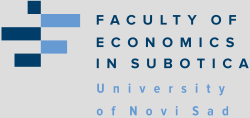SOCIAL COMPETENCIES OF LEADERS AS KEY FACTOR OF EMPLOYEE WORK ENGAGEMENT DURING THE CRISIS
DOI:
https://doi.org/10.46541/978-86-7233-416-6_59Keywords:
liderstvo, socijalne kompetencije, radna angažovanost zaposlenih , krizaAbstract
Work-engaged employees are one of the key factors on which organizations build a competitive advantage, and leaders have a significant role in encouraging and maintaining a high level of work engagement, especially in a crisis period. The subject of the work is the analysis of the concepts of work engagement of employees and social competencies of leaders, as well as their specificities in the period of crisis. The aim of the present study is to examine whether social competencies of leaders contribute to subordinates’ work engagement. A sample of 100 employees was selected from several middle-sized organisation operating in private sector in AP Vojvodina. Standardized questionnaires such as ESCI 360 (Emotional and SocialCompetency Inventory), only questions for measuring social competencies and the UWES-9 (Utrecht Work Engagement Scale) for measuring work engagement, was used. SPSS 25.0 software was used for data processing. The research results confirmed that there were statistically significant relationship between managers' social competencies and employees’ work engagement. The importance of social competencies of leaders and their contribution to work engagnement has not been sufficiently explored in our business environment, especially in crisis period. Thus, results of this research and conclusion of paper emphasise above mentioned and should encourage more research in this field.



